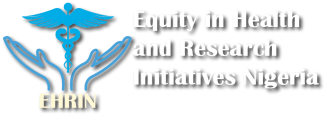Over the past decades, access to modern contraceptives has been very limited in limited in Nigeria especially among rural dwellers. Current contraceptive prevalence rate for modern methods in Nigeria is only 12%. Many women families living in marginalized settings have no access to clinics where they can visit competent health care providers for their contraceptive needs. This creates inequality in health care access. However, evidence has shown that even lower cadre health care providers such as the community health extension workers and community health officers or even non-formally trained providers such as the Patent and Proprietary Medicines Vendors (PPMVs) can be trained, mentored and monitored to provide the need services for families in hard-to-reach locations. For more information, read:
The effect of job aids on knowledge retention among Patent and Proprietary Medicine Vendors trained to administer injectable contraceptives: longitudinal results from implementation science in Nigeria. Chace Dwyer et al. BMC Public Health (2019) 19:1362 https://doi.org/10.1186/s12889-019-7668-2
Feasibility of patent and proprietary medicine vendor provision of injectable contraceptives: preliminary results from implementation science research in Oyo and Nasarawa, Nigeria. Chace Dwyer S, et al, Feasibility of patent and proprietary medicine vendor provision of injectable contraceptives: preliminary results from implementat…, Contraception (2018), https://doi.org/10.1016/j.contraception.2018.08.015
